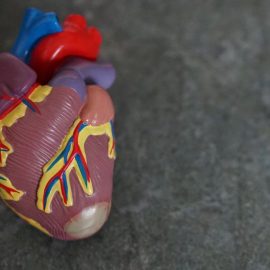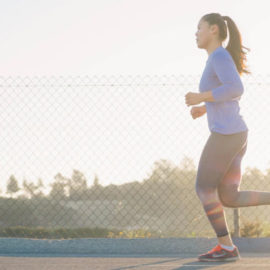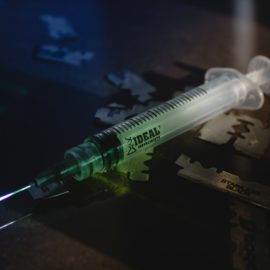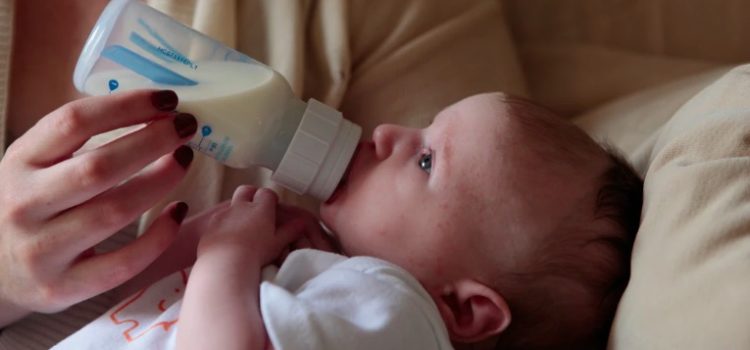
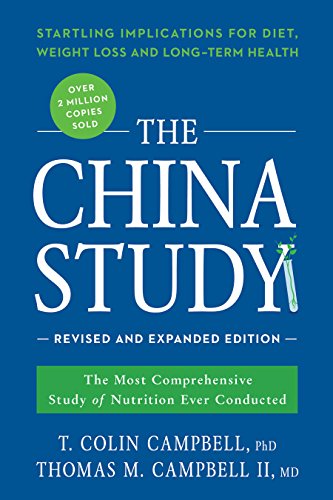
This article is an excerpt from the Shortform summary of "The China Study" by Colin Campbell. Shortform has the world's best summaries of books you should be reading.
Like this article? Sign up for a free trial here .
How do you get Type 1 diabetes? It’s become a heated topic that’s emotional for many parents with children who’ve developed this autoimmune disease. Is there something we can do that aids in Type 1 diabetes prevention? What’s the theory behind the link between milk and Type 1 diabetes?
The answers to all these questions are still unknown, but researchers have opinions. We’ll cover what Dr. T. Colin Campbell and his son Dr. Thomas M. Campbell II, authors of The China Study, believe could be the cause of Type 1 diabetes.
Possible Answers: How Do You Get Type 1 Diabetes?
Type 1 diabetes develops primarily in children, and there is no cure. In people with Type 1 diabetes, the pancreas stops producing insulin because the immune system has destroyed the cells that make it.
Milk and Type 1 Diabetes
Multiple studies have found that infants weaned early and fed formula with cow’s milk have a 50-60% higher risk of developing Type 1 diabetes. Is this the clue to answering, How do you get Type 1 diabetes?
The increased diabetes risk of infants who drink cow’s milk may be due to the fact that some infants can’t fully digest the milk protein in formula. These undigested proteins can get into the blood. The immune system attacks these foreign invaders. Unfortunately, the pancreas cells responsible for making insulin look exactly like these undigested milk proteins.
A virus may corrupt the immune system, causing it to destroy both the foreign milk proteins and the identical pancreas cells. Consequently, the infant develops Type 1 diabetes. This known connection is one reason doctors recommend breastfeeding over formula.
In one study, every diabetic child had antibodies to the milk protein BSA at levels above 3.55 IgG. This indicated that they’d consumed a lot of cow’s milk. Conversely, every child who didn’t have diabetes had antibodies to this milk protein lower than 3.55 IgG. There was no overlap. The number 3.55 neatly split the children into two groups that aligned exactly with whether they had diabetes or not.
Although it’s not clear that these BSA antibodies caused the development of diabetes, it’s a possibility. Further supporting this argument is the fact that Type 1 diabetes is more common in countries where children consume the most cow’s milk.
So, do we have an answer to the question, How do you get Type 1 diabetes? Yes and no. As we’ll see, it’s complicated.
The Role of Genes in Type 1 Diabetes
Some children are genetically susceptible to Type 1 diabetes. However, genes don’t cause the disease. In a study of identical twins, if one twin had diabetes, there was only a 13-33% chance the other would develop the disease, even though they had exactly the same genes.
Further, of children with genetic predispositions, fewer than 10% actually get Type 1 diabetes.
Another sign that genes are not determining factors is the fact that Type 1 diabetes is increasing worldwide at a rate of 3% per year. Genes remain relatively stable over hundreds of years, so this increase has nothing to do with evolving DNA.
While certain genes increase your chances of developing the disease, cow’s milk consumption is likely one of the triggers that determines whether or not you’ll get the disease.
Using “Controversy” to Stifle Research Publicity
Because the dairy industry is so powerful in the U.S., and because most of us, including scientists and doctors, have a personal bias toward milk and dairy products, these common findings aren’t publicized.
As a way to undermine these findings, some scientists call them “controversial.” But they’re not. What people interpret as controversy is really just the confusion of hearing that something they’ve always been told is good for them may actually trigger a lifelong disease.
Critics of studies linking milk and Type 1 diabetes point to five studies (there are only five) that failed to find a statistically significant link.
But we need to keep in mind that there are many reasons a study might fail to find a link:
- The study didn’t involve enough people.
- The subjects didn’t have a variety of infant feeding practices, so it was hard to detect a relationship.
- Data from asking people to remember how they fed their infants years ago could be unreliable.
- Researchers may have studied the wrong time in the infant’s life.
There’s ample evidence that eating dairy can contribute to the development of Type 1 diabetes. Could it be a risk factor for other autoimmune diseases? The answers are unclear, but research continues to be done to answer the question, “How do you get Type 1 diabetes?”
Type 1 Diabetes Prevention
Consider breastfeeding your infant and decreasing your child’s consumption of cow’s milk to lower his or her risk of Type 1 diabetes.
———End of Preview———

Like what you just read? Read the rest of the world's best summary of "The China Study" at Shortform . Learn the book's critical concepts in 20 minutes or less .
Here's what you'll find in our full The China Study summary :
- Why animal proteins (meat, milk) might cause cancer, diabetes, and other diseases
- Why the medical institution is structured to hide the truth about disease and food
- The precise diet you'll need to eat to live longer and feel happier


